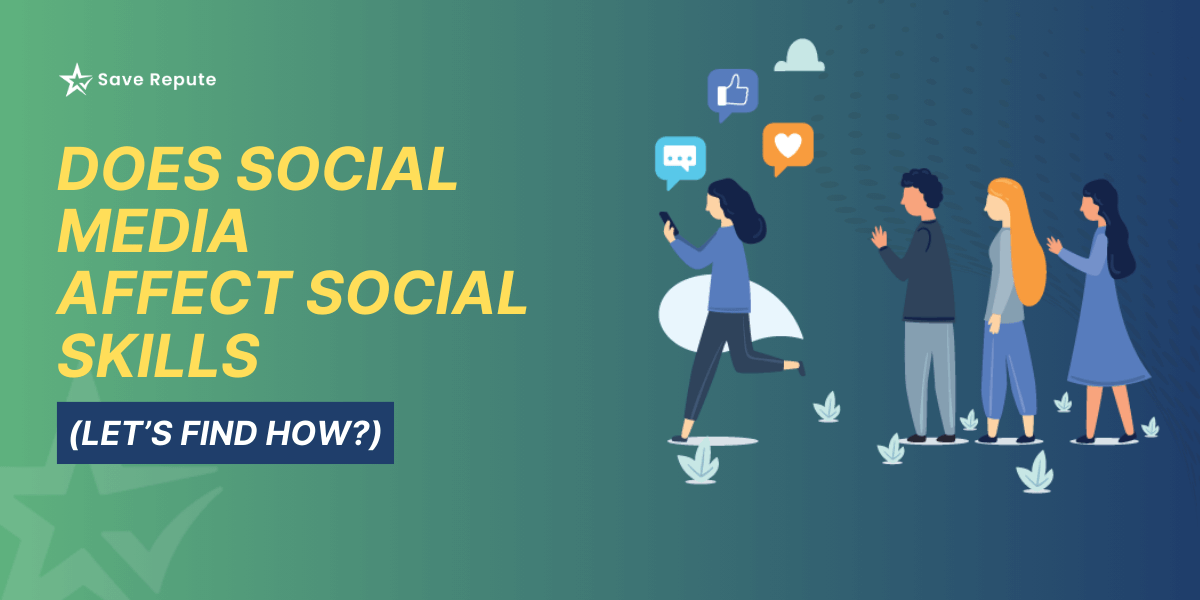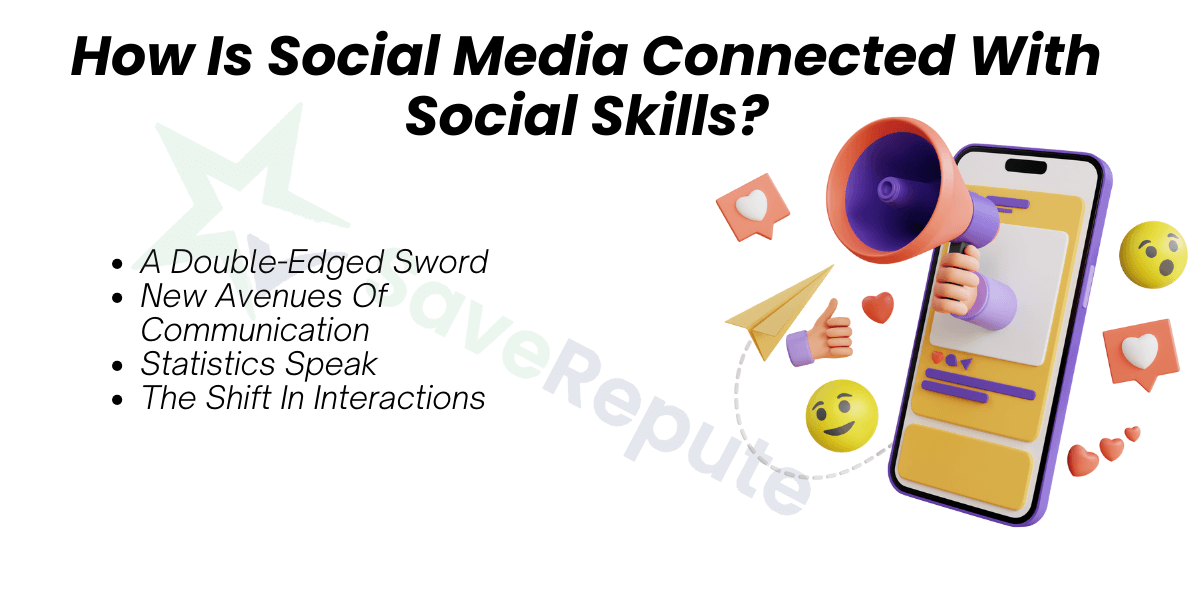In a world where digital interactions have become increasingly prevalent, there’s been a surge of interest surrounding the effects of social media on our daily lives. A groundbreaking study from Harvard University in 2022 revealed that individuals who spend more than 5 hours daily on social media platforms exhibit a 30% decline in face-to-face social interaction skills. As compared to those who spend less than an hour. Moreover, there’s an observable shift in the nature of these interactions. It’s essential to get deep into its implications on our interpersonal dynamics. Let’s deep dive with SaveRepute on How social media affects social skills and how they shape our social abilities.
What Are Social Skills?
Social skills refer to the set of behaviors, actions, and communication techniques we employ in our interactions with others. These range from basic manners and etiquettes to advanced skills like empathy and active listening. Social skills in communication are paramount as they help individuals convey their thoughts and feelings effectively, building stronger relationships. This can be as simple as understanding when to say “please” and “thank you”, or as complex as discerning the mood of a room when entering a meeting. It builds one’s reputation in front of others.
Why Are Social Skills Important?
Social media is an important part of social skills that cannot be overstated. They play a critical role in our professional and personal lives. When we communicate effectively, we’re better equipped to understand and respond to others’ needs, fostering harmony in relationships. Moreover, they:
- Enhance teamwork and collaboration in professional settings in a workplace.
- Aid in conflict resolution.
- Boost self-esteem and confidence.
- They improve our mental health. People who struggle with these skills often report feelings of isolation, depression, and anxiety.
- Play a crucial role in personal relationships, ensuring emotional well-being.
Considering the significance of these skills, it’s vital to be aware of factors that influence their development and maintenance, such as social media.
How Is Social Media Connected With Social Skills?
Social media platforms become an integral part of our lives, it’s natural to wonder how they influence our social skills in communication in what manner?
1: A Double-Edged Sword
While social media platforms offer the allure of instant global connectivity, they also present challenges to traditional interpersonal skills. The importance of social skills extends to both offline and online realms, but the rules and nuances change slightly in the digital domain.
2: New Avenues Of Communication
Platforms like Facebook, Instagram, and Twitter introduce us to an array of communication tools: from concise tweets to emotive stories, from heartfelt comments to the simple act of ‘liking’. These tools offer new ways to express our feelings, thoughts, and reactions, enriching our social skills in communication.
3: Statistics Speak
An interesting statistic of social media on social skills indicates that people, especially the youth, now have more “friends” or “followers” online than they have close personal connections offline. This dynamic raises questions about the depth and quality of these online relationships and how they might influence our traditional understanding of friendship and connection.
4: The Shift In Interactions
With over half the global population now active on social media, there’s an observable shift in how we communicate. Face-to-face conversations, once the norm, are now supplemented (and in some cases, replaced) by online chats, video calls, and digital interactions. This evolution impacts how we perceive, interpret, and value conversations.
You may be Interested in reading: How to Track Influencer Marketing
What Are The Impacts Of Social Media On Social Skills?
The impacts of social media on social skills have increased a lot. These impacts are being utilized in both positive or in our areas of concern. Such as:
- Positive Impacts:
- Broadened Horizons: Social media connects us globally, introducing us to diverse cultures and perspectives, thereby enriching our communication palette.
- Improved Written Communication: The digital age has undeniably refined our writing skills, essential in today’s professional world.
- Areas of Concern:
- Reduced Face-to-Face Interaction: While online interactions are valuable, they might lead to a decline in face-to-face engagements, impacting our ability to read physical cues and body language.
- Superficial Relationships: The transient nature of online interactions may reduce the depth and authenticity of some relationships.
- Over-reliance on Digital Tools: Over-dependence on emojis and gifs might inhibit the expression of emotions verbally.
How Can We Balance Social Media And Improve Social Skills?
Understanding the effects of social media is just the first step. The next is leveraging this understanding to strike a balance. Here are some tips:
- Allocate specific times in the day for a digital detox.
- Curate your social media feed to promote positive interactions.
- Prioritize in-person meetings over digital communications.
- Engage in active listening during all conversations.
- Participate constructively in online communities.
- Limit the frequency of checking notifications to reduce dependency on online validation.
- Stay informed about the evolving relationship between social media and social skills.
Wrapping It Up
Social media offers vast opportunities but also challenges our traditional social skills. It’s essential to strike a balance: harnessing the global reach of online platforms while nurturing face-to-face interactions. Remember, the key is not to choose one over the other, but to integrate both harmoniously into our lives, ensuring meaningful and genuine connections in all settings.



